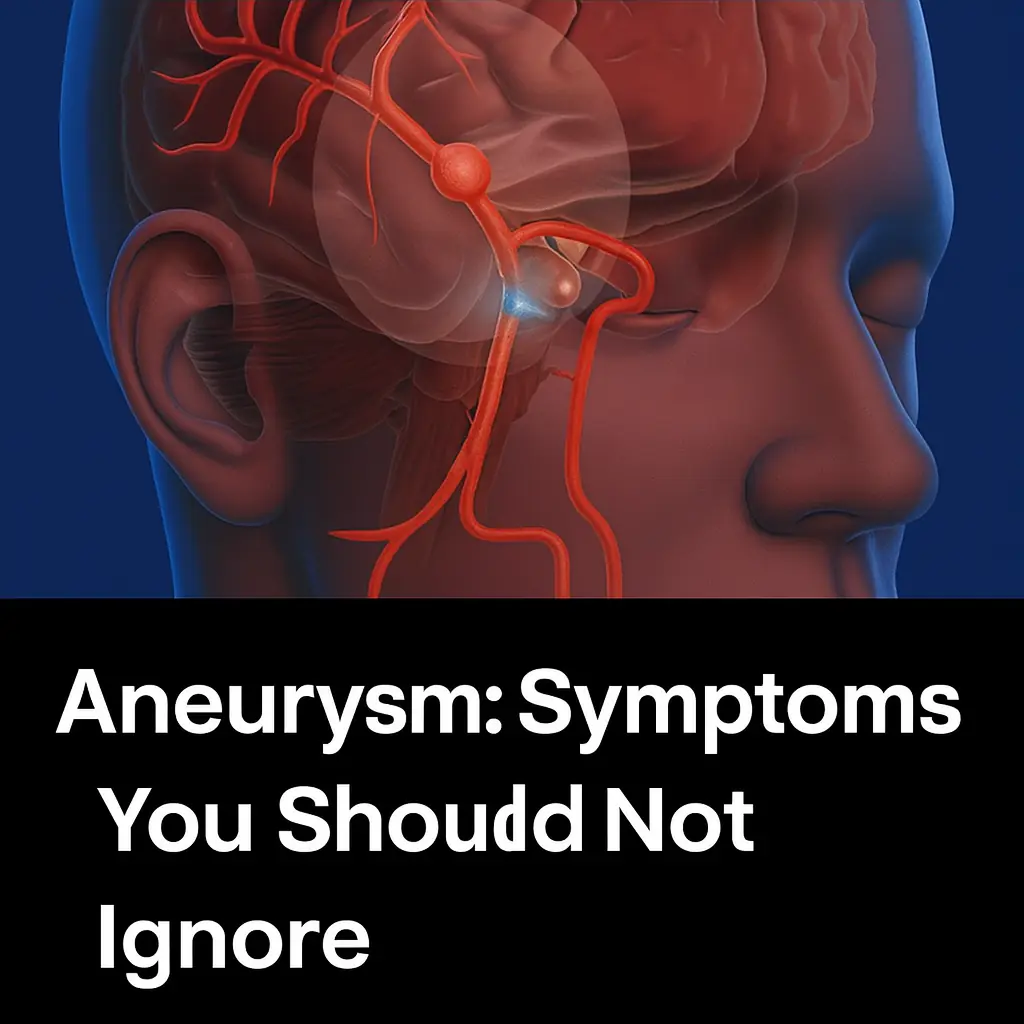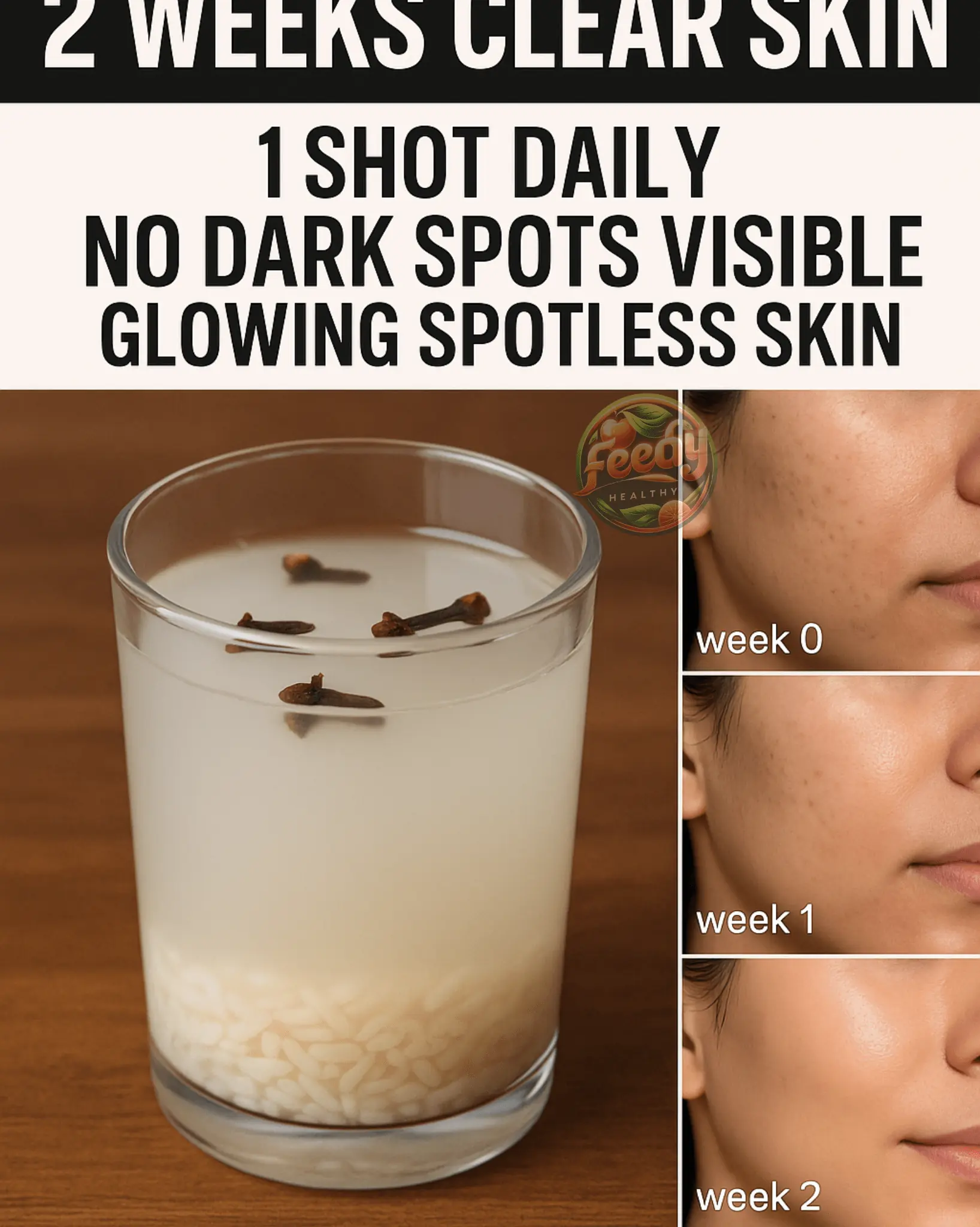
Aneurysm: Warning Signs You Should Never Ignore to Protect Your Brain Health
A brain aneurysm is one of the most alarming conditions that can affect your brain. It can develop silently without noticeable symptoms, which makes early detection and treatment crucial. In this article, we’ll explore the warning signs you should never overlook, as well as prevention strategies and natural ways to support your brain health.
What Is a Brain Aneurysm?
Aneurysms occur when a section of a blood vessel wall weakens, forming a bulge. These can remain asymptomatic for a long time, making diagnosis difficult. However, if an aneurysm ruptures, it can cause life-threatening brain bleeding. That’s why recognizing early warning signs is essential.
Signs and Symptoms of a Brain Aneurysm
The symptoms vary depending on the aneurysm’s size, location, and whether it has ruptured. Key warning signs include:
-
Severe headache: Often described as the “worst headache of your life,” it may come on suddenly and without warning.
-
Nausea and vomiting: Frequently accompany severe headaches, especially during a rupture.
-
Blurred or double vision: Vision problems can be a sign of pressure on certain brain areas.
-
Seizures: Sudden onset of seizures in someone with no prior history can be a major red flag.
-
Loss of consciousness: A ruptured aneurysm can lead to fainting or blacking out.
The Importance of Early Detection
Early detection can mean the difference between full recovery and severe complications. If you experience any of the above symptoms, seek immediate medical attention. Advanced imaging techniques like MRI and CT scans can identify aneurysms before they rupture.
There are also risk factors that increase your chances of developing an aneurysm, including:
-
Family history of aneurysms
-
High blood pressure
-
Smoking and excessive alcohol consumption
Understanding your risk profile can help you take preventive action.
How to Prevent Brain Aneurysms
While not all aneurysms can be prevented, adopting a healthy lifestyle can reduce your risk:
-
Eat a balanced diet: Focus on fruits, vegetables, whole grains, and healthy fats to maintain blood pressure levels.
-
Exercise regularly: Physical activity supports overall vascular health and helps control hypertension.
-
Avoid smoking: Tobacco is a leading risk factor. If you smoke, seek support to quit.
-
Manage stress: Practices like yoga, meditation, and deep breathing can help lower blood pressure and support brain health.
Natural Remedies for Brain Health
In addition to lifestyle changes, certain natural supplements and habits may support your brain:
-
Omega-3 fatty acids: Found in fish and nuts, these can enhance circulation and reduce inflammation.
-
Ginkgo Biloba: Traditionally used to boost brain blood flow and may support memory and concentration.
-
Green tea: Rich in antioxidants, it may have neuroprotective effects and improve cognitive function.
-
Mental stimulation: Activities like reading, doing puzzles, or learning new skills keep your brain active and sharp.
Final Thoughts
Brain health is vital to your overall well-being, and aneurysm prevention should be taken seriously. Being aware of the warning signs, making healthy lifestyle choices, and exploring natural support options can help protect your brain.
If you notice any concerning symptoms, don’t delay—seek medical help right away. Your health is your greatest treasure, and taking timely action can make all the difference.
The good news? By eating well, staying active, and managing stress, you can make a significant positive impact on your brain’s long-term health. Stay informed, take care of yourself, and share this information with loved ones so that everyone stays aware and protected.
News in the same category


The Power of Dates: Benefits for Your Digestive Health

Natural Power Drink to Cleanse the Liver and Blood Vessels: Just 2 Ingredients!

Dietary Adjustments to Improve Erectile Dysfunction and Premature Ejaculation: 3 Often Overlooked Fruits

The Most Harmful Drink for Your Blood Vessels – You Might Be Drinking It Every Day Without Knowing!

Symptoms to Detect Breast Cancer: What You Need to Know

Ginger Clove Shot For Glowing Skin

Old Doctors Swear By This: Castor Oil & Baking Soda Treat 19 Health Issues – Results in Just 48 Hours!

Fibromyalgia: How to Manage It with Natural Remedies and a Healthy Lifestyle

Scientists Found The Hidden Factor Behind the Global Infertility Crisis, And It’s Terrifying

Drink This Natural Tea to Relieve Swelling in Legs, Ankles, and Feet

At 60, I Healed Cancer, High Blood Pressure, Diabetes, and Poor Circulation – Thanks to This Natural Drink

Benefits of Onion in Water: A Natural Remedy for the Prostate

Eliminates bloated belly, clears urinary infections, and cleanses fatty liver.

Expert Reveals: Why a Boiled Egg Could Transform Your Health

The Most Dangerous Sleeping Position: What You Didn’t Know

5 Things Doctors Say You Should Never Give Your Kids to Help Prevent Cancer

5 Foods Dubbed “Vacuum Cleaners” for the Lungs: Eat Them Regularly to Cleanse Your Lungs

Research Reveals: Regularly Eating Fried Eggs in the Morning Can Bring 4 Major Health Benefits
News Post

Toggle menu Newsner Stories EN Newsner Stories EN Now we pay tribute to the animal lovers who saved the dog completely covered in tar – what heroes! Now we pay tribute to the animal lovers who saved the dog completely covered in tar – what heroes!

The Deep Meaning of Holding Hands: Emotional Connections and Symbolism

The Power of Dates: Benefits for Your Digestive Health

Natural Power Drink to Cleanse the Liver and Blood Vessels: Just 2 Ingredients!

Little girl walks into police dog auction alone — what followed brought everyone to tears

NASA Monitors Plane-Sized Asteroid Speeding Toward Earth at 47,000 MPH

4 Things You Should Never Say at a Funeral — No Matter What

Point Nemo: The Most Remote Place on Earth—Closer to Space Than Humanity

🍓 Strawberry Oreo Parfait Cups

🍰 Blue Oreo Drip Cake (Cookies & Cream Delight)

🧁 Mini Pistachio No-Bake Cheesecakes

🍓 Strawberry & White Chocolate Shaved Ice Sundae

🍵 Pistachio Shaved Ice Sundae

Staying at Home with Your Children is Harder Than Going to Work

This is why you should keep the bathroom light on when sleeping in a hotel

🍫🫐 Chocolate Blueberry Lavender Cake

🍒 Black Forest Berry Cheesecake

🍓 Strawberry & Chocolate Blossom Parfait

🍓 Berry Crunch Milkshake Sundae
